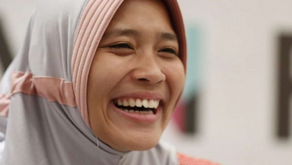Rose Mary Nakame, Founder and Executive Director, REMI East Africa
- realshepower

- Jun 10, 2020
- 2 min read
Updated: Aug 12, 2020
Rose Mary comes from a humble background in Uganda. At an early age, she was diagnosed with a brain tumour. It was difficult for her family to fend two meals a day, this news had a devastating effect on them. Other than the economic condition of her parents, lack of specialized health services and gender bias further aggravated the situation. But her parents ensured her treatment against all odds. Her operation had a minimal chance of survival, but Marry was the chosen one. She survived the tumour and thereon decided to devote herself to improving/enhancing the health care system of Uganda.
In 2014 she got her Bachelors degree in Nursing from International Health Science University, Uganda. To further her commitment to improving the health sector, she associated with "Young African Leaders Initiative." This made her realise a lack of basic resources among Eastern Africa Health Workers. Corruption at every administrative level added to the deplorable condition of the health sector. This pushed her to start "REMI East Africa", a health equity organization that works to influence health policies, strengthen health systems and address the social determinants of health. The major premise being, "to make healthservices available to the poor."
The "Health Equity Voice" project started by her created a stir on social media. People were made aware of the powerful tools of traditional communication such as storytelling, that further enabled rural health workers in becoming grassroots advocates for improved health education and health equity of their specific regions.
In collaboration with The University of Manchester, UK, she designed a curriculum on how students can contribute to the attainment of Sustainable Development Goals 3: health and well-being for the poorest.
WHO too had taken help from her "Health Equity Voice" project to design policies for the nursing sector.
We applaud her efforts, determination to bring a viable sustainable change in society. She is an inspiration for women around the world.

"Advocacy cannot be sustained without grassroots champions and these need to be nurtured and empowered to become the voices of change. Therefore, by equipping health workers with skills in evidence-based practice and leadership, they will champion the strengthening of a health system that delivers quality health care to the poorest."
- Rose Mary Nakame

























Comments